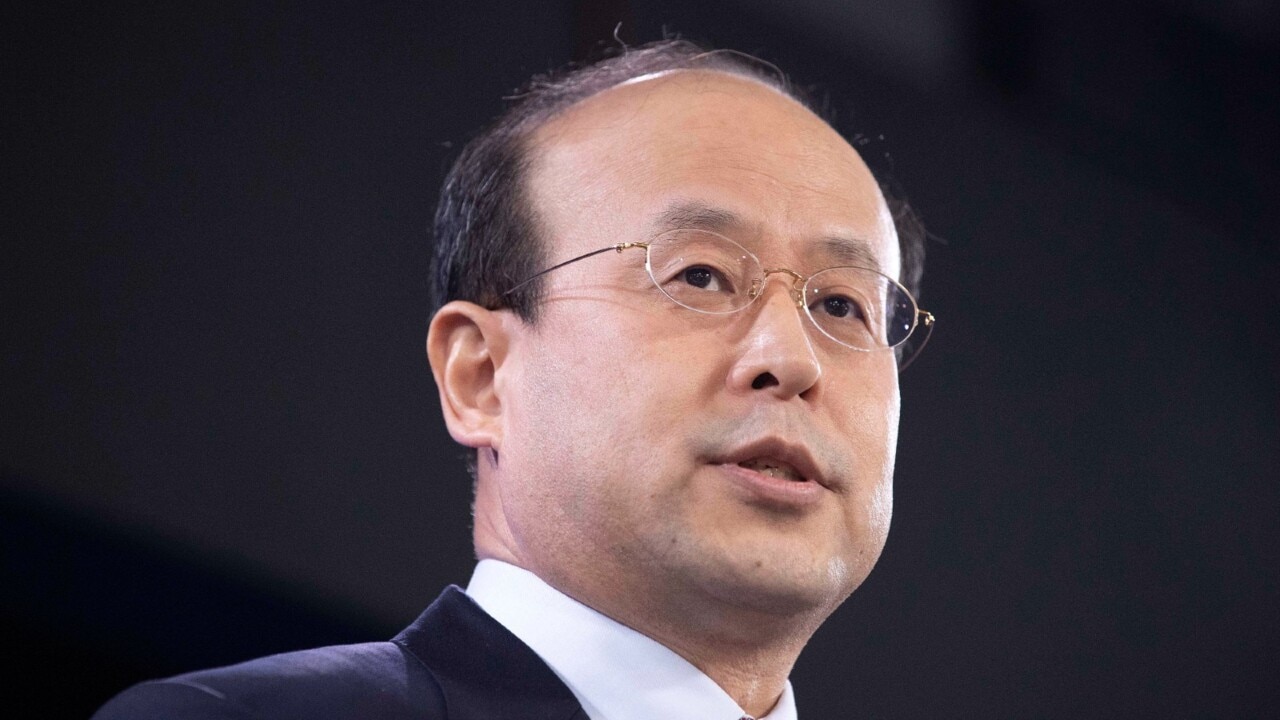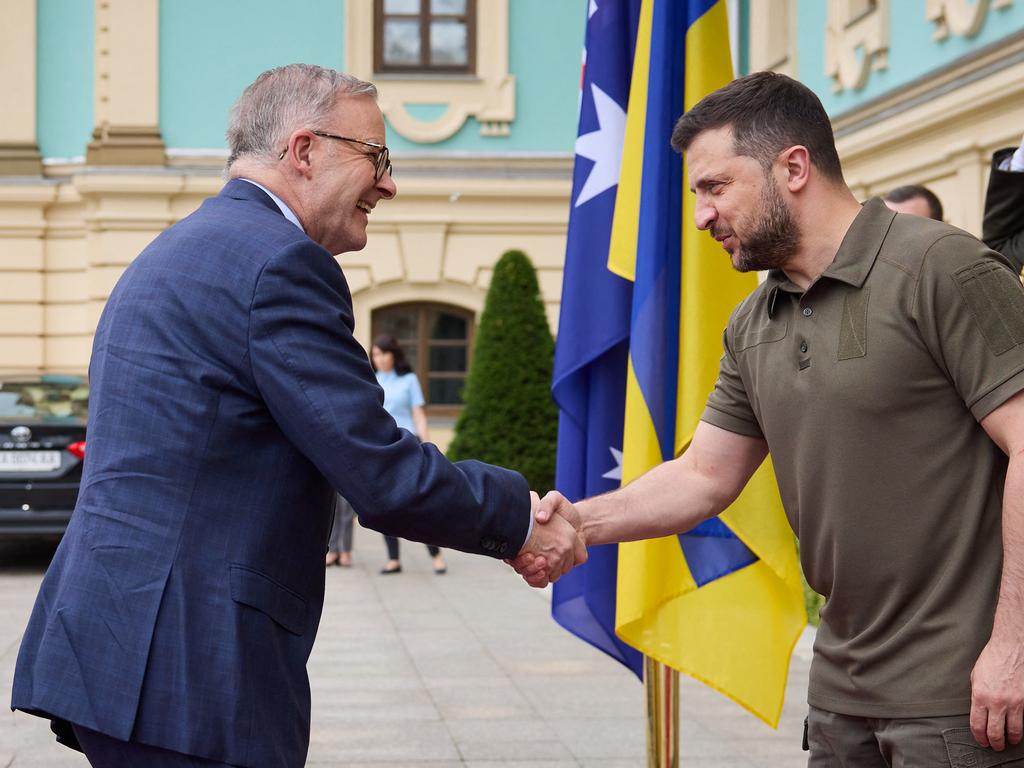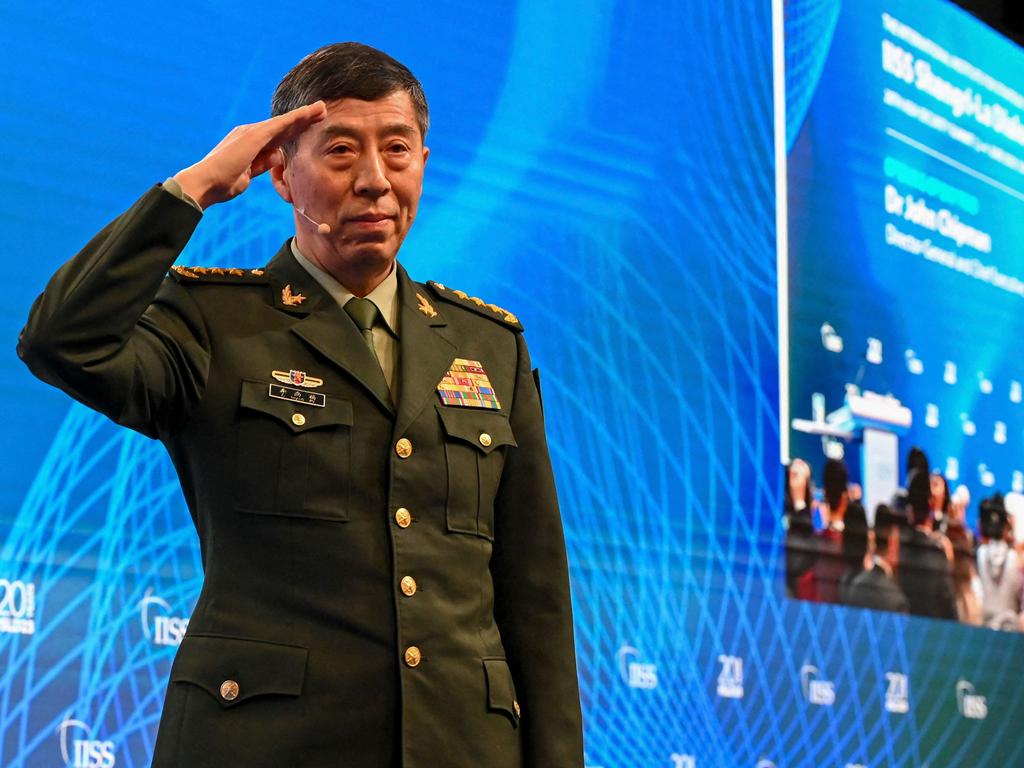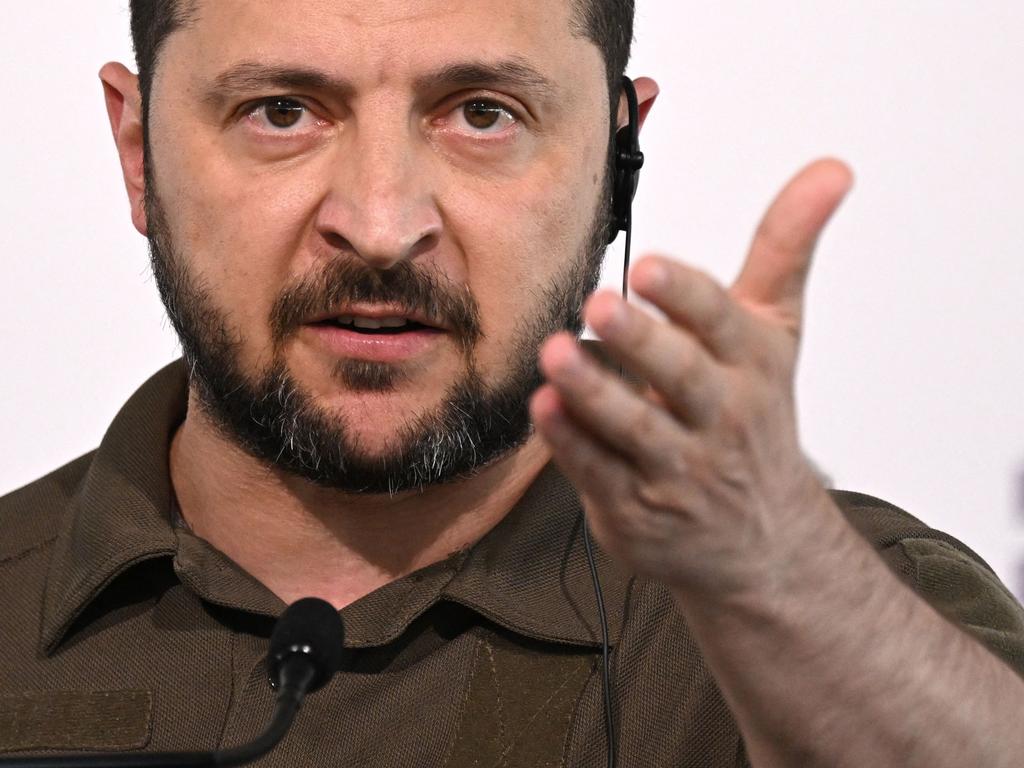Richard Marles ‘haunted’ by prospect of US, China war in Indo-Pacific
The Defence Minister revealed on Sunday that he worries Russia’s war in Ukraine has raised the odds of ‘the contest to come’ as China challenges US global dominance.

Richard Marles says he is “haunted” by whether Russia’s war in Ukraine is a “forewarning of the contest to come” as China challenges America’s global dominance.
Australia’s Defence Minister told Singapore’s Shangri-La security conference on Sunday that Vladimir Putin’s invasion – launched months before the election of the Albanese government – had raised the prospect of war in the Indo-Pacific.
“The question that haunted me then – and still does a year on – is whether the war in Ukraine is a ‘terminal spasm of Europe’s imperial past’, as one astute commentator noted, or a forewarning of the contest to come in a post-hegemonic world.
“Where states see opportunity to build a new order according to their preferences – including, if necessary, by military aggression,” Mr Marles said in a speech.
“Putin clearly saw such an opportunity and determined he would seize it.
“Australia believes it is vitally important for our collective future that the world concludes from Ukraine’s inspiring resistance that Putin’s gambit failed, and that the costs of military aggression far outweighed any perceived benefit.”
The Australian Defence Minister spoke hours after his Chinese counterpart Li Shangfu told the same forum that, while Beijing preferred “peaceful unification” with Taiwan, China would never “promise to renounce the use of force” against the self-governed liberal democracy.

Minister Li, a general and since March the international face of the People’s Liberation Army, also took a swipe at the US and its AUKUS security partnership with Australia and the UK, along with denouncing “block confrontation” and “Cold War mentality”, phrases used to describe America’s alliance network.
In response to widespread concerns about reckless behaviour by the PLA in the South China China Sea, East China Sea and Taiwan Strait, China’s military chief said that other countries should “mind your own business”.
Mr Marles and an Australian delegation that included his department secretary Greg Moriarty and General Angus Campbell, chief of the Defence Force, had a bilateral meeting on Saturday with Minister Li. Beijing denied Washington’s requests to arrange a similar meeting with America’s Defence Secretary Lloyd Austin.
Australia and China have also recommenced their defence dialogue, one of many channels Beijing froze during its unhappiness with the Turnbull and Morrison governments.
“These are important steps forward and we acknowledge that these are steps which China and Australia have taken together,” Mr Marles said on Sunday.
“But it is also important that transparency in strategic intent and the purpose of military growth characterise the way nations operate in the Indo-Pacific and for that matter the world.”
Australia’s Defence Minister said, a year after he raised his concerns about the opacity with which China was conducting “the largest conventional military build-up the world has seen since the Second World War”, Beijing had still not provided “our region or the world with any strategic reassurance” about its intent.
He rejected Beijing complaints, repeated on Sunday morning by Minister Li, that Australia’s AUKUS defence technology agreement or Quad grouping with America, Japan and India were creating regional instability.
“Some would seek to frame groupings like AUKUS and the Quad as ‘blocism’, which somehow diminish ASEAN.
“To the contrary, they show how small groups of countries can work together in support of the principles and objectives we all hold so dear.”
Mr Marles said, in contrast to China, Australia’s government was committed to being “as transparent as possible” about its defence strategy, pointing to the more than 60 calls made to regional and other world leaders explaining the AUKUS nuclear-powered submarine deal.
But he said, even as Australia upgrades the country’s military capabilities, diplomacy would remain at the “front line” of Canberra’s engagement with the world.
“Diplomacy is not measured by the volume with which friends agree. Rather its measure is in how tensions are navigated. Substantive discussion always matters.
“And we will always seek to use diplomacy to create pathways for peace.”








To join the conversation, please log in. Don't have an account? Register
Join the conversation, you are commenting as Logout